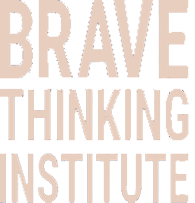It was a time in England when there was a recession. I’d gotten into debt and wasn’t earning enough – the situation spiraled into bankruptcy. I lost my home and business and because of that my relationship collapsed too (obviously it wasn’t a relationship built on very solid ground). I was left with nothing and after having fought this for so long, I felt in despair. But then one day when all was lost, walking on the cliffs by the sea, I had a sudden “aha” moment. I felt exhilarated and more powerful than at any time in my life, like I’d broken free of the bonds that were tying me down. I felt grateful to be alive and full with love. Sounds corny, but actually this was one of the best moments of my life. I realized that underneath all of this trauma was really a tremendous opportunity; it was clearing the decks for me to do what I’d always really wanted to do, what I was born to do.

And that’s just what I have done: training and participating in a range of personal growth techniques, writing the book ‘Transforming the Mind’ that summarized my knowledge to date, further developing the most effective methods I’d found, moving to France, finding the love of my life who I knew was there, running the web site to reach all those people who are looking for the same things I’d searched so long for – and to be of service in the most valuable way I knew how.
In the picture – Peter Shepherd with his beloved wife Nicole
The moment
It was a transformational moment for me because I finally recognized who I was – I got in touch with my heart. Emotional intelligence – intelligence of the heart – is the ability to sense and understand the power of emotions, to channel them as a source of energy, creativity and intuitive insight. Balancing and integrating the head and heart, channeled through the left and right brain – this is the mission of personal growth work.
The key factor is the way that we interpret our circumstances, based on our prior experiences and belief system, to either respond reactively like a stimulus-response machine, with an emotion that is outside our control and may be inappropriate and self-defeating, or to respond proactively with responsibility and freedom of choice.
An important part of our success in life is attributable to intellect. But other qualities – self-awareness, self-motivation, empathic understanding, emotional maturity and integrity – are just as important and they are part of our emotional intelligence. And close to our heart. I realized, walking on the cliff with the sun shining down, a very simple but essential understanding from which all the other philosophical and psychological principles that make sense to me – even the complicated ones – naturally follow: that God is love, and God is within each of us.
Love is unconditional acceptance. That quality is also our essential nature, who we really are. It is love of parents for child; also the non-possessive love of partners; also the caring love for all people that enables forgiveness. It’s above energy, though it may be expressed energetically; it’s Spirit itself, the nature of God, the quality we share with God; and it is the binding force of the Universe, necessary for all Creation.
That has broad application because one doesn’t need to “believe” in anything. Though it doesn’t invalidate or exclude religious beliefs, I feel it’s far more empowering than the “man in the sky” concept of God, who is an exterior, remote and controlling force. The concept of God, then, is a symbol for the consciousness of love that connects all of us, with each other and all life and existence. One has spiritual power through all domains: individual, relationship, family, group, society, nature and physics. The light of God is love; evil does not exist – it’s just the shadows and they can be lit again. We are beings of love, and that is only distorted by the mind to manifest negatively; such distortions can be straightened.
Of course, I don’t suggest that readers go about losing everything they have, in order to clarify their situation in this way. Far from it. But I think it’s a good idea to imagine yourself in that position… how would you feel? What fears would you have and how could you overcome them? What opportunities would it offer you… and why aren’t you taking advantage of those opportunities now, instead?
Some tips to help you…
Here are some more tips to help develop your connection between mind and heart…
1. Be yourself
If I make a comment to someone – even though it was kindly and sincerely meant – and they get upset or take offense, is their upset my responsibility? The answer is no. You can genuinely love someone whilst nevertheless doing something they don’t like or agree with. You do it because you feel it is the right thing to do, though you still understand and have empathy for their different viewpoint (that causes their emotional reaction) that they have created by their own choices and belief system.
If one only did things others can easily accept then the status quo would never progress. That would truly be a trap. The solution here is better communication, leading to increased understanding of each other’s viewpoint, and therefore acceptance of the differing personal realities.
There is a strong imprint in our culture to feel sad, guilty, etc. for painful emotions our actions may cause to others. There’s a general misconception that you are your emotions. “I am angry” and “you make me angry”. This is conditioning not truth. In terms of cause and effect, it’s a viewpoint at effect. Some say that to be happy, only do what others can easily experience – it’s the same lie.
The Church teaches “Do unto others as you’d have them do unto you.” I believe this IS the best advice, as if you are being ethical – acting from integrity, being true to your self – then it’s going to be OK for others to do the same to you. And if it isn’t then you’d better re-think whether you are indeed doing the right thing. It is one definition of a ‘wrong’ action: that which you would not like another to do to you.
You are responsible for your choices, decisions and actions. For being true to your judgment. For communicating with honesty and integrity, developing and maintaining an open mind, and promoting understanding and empathy. For never compromising your freedoms and rights nor trampling on another’s. For always acting from the primary motivation of love. That’s all and quite enough. Others are responsible, in the same way, for their own beliefs, interpretations, feelings, responses, and reactions; that’s their right and their life – none of our business.
2. Decide what you want
Think of five things that are really important to you: they might include a nice house, loving supportive partner, the chance to travel, a good job, and so on. Now look at your current life and see how it matches up. These questions can help you pinpoint problem areas:
♥ What are you doing that you do indeed want to do?
♥ What are you doing that you don’t want to be doing?
♥ What are you not doing that you do actually want to do?
In the light of this information, clarify your goals. Be specific – before you can plan how to achieve a goal it needs to be stated in a way that is realistic, measurable and time-targeted. Your action plan should be broken down into manageable chunks – the steps you know you can make that, one by one, will take you to where you want to go.
I believe that we do create our reality – at one level, our ‘being God’ spiritual level – and at another coexistent level – the ‘game of life’ on this planet – everything has to be achieved through action, i.e. there is distance between cause and effect. In practice this means we do best to ‘manifest’ spiritually (perceive our goal as already achieved and be grateful and ‘allowing’ for that) at the same time as we put our goals into directed action, so there is congruence between these two aspects of our being. We ourselves are a channel for spiritual manifestation. Also we need to make sure that our beliefs (at every level of the mind – conscious and subconscious) match up to our goals and our desires. Mind, body and spirit working in harmony.
My work is all about encouraging individuals to discover the truth within themselves – their own inner knowing that is gradually exposed by their own increasing awareness, responsibility and acceptance. When all distortions and filters are cleared, those subjective realities start to coincide with an objective reality, albeit on a wider dimensional basis than the 3-D world of materiality that scientific rationalism is normally limited to.
3. Don’t worry
The shadow of love is fear. To understand one’s fears and anxieties better I have found it workable to determine what need corresponds to the fear, as fear and need tend to go together: they’re opposite flows, like the fear of not obtaining one’s needs, whether for survival, comfort, belonging, rightness, esteem, success, realization, and so on. When you’ve identified the corresponding need, it’s easier to see if that need makes sense. Of course, you are worried if your child has got lost and you do all you can to resolve that situation. But more often worry is a result of not wanting to own up to what you have done, or trying to predict and control other people’s feelings, and especially trying to please another rather than just being content at having done what you feel is the right thing.
Unpredicted obstacles may occur so it is important to stay flexible and to think laterally. The future isn’t always predictable; instead of worrying about what the future holds, we need to learn to let go and trust in the Universe to reflect our intentions. We cannot do better than our best. We need to be open to new ideas and listen to our intuition to direct us to new solutions. Life is a game – think of it like that and don’t take anything too seriously. Enjoy the challenges life offers!
4. Take control
Instead of feeling overwhelmed by a task, break it down into small segments that you know you can do and start on the first one. If you have lots of incomplete jobs, list them in order of priority and tackle the most important job first. This way you have a sense of achievement at each step – and you’ll soon find yourself getting a whole lot more accomplished. Production equals morale. And if you’re living or working in a mess, sort it out – a disordered environment is reflected in your mind.
5. What makes you happy?
Write down a list of things that make you excited, however big, small, likely or unlikely. Then work to make them occur more often in your life. And appreciate the good things you take for granted – your child’s hug or a good book. Look for moments of joy and savour them. Recognize how many happen every day. Feeling good can be a way of life, not just an occasional accident.
6. Smile!
Smiling triggers happy feelings in the brain and reduces stress. Even if you don’t feel happy or confident, just behave as though you do and soon you will. Find the joy in your life and you’ll be more attractive and nicer to be around, people will be nicer to you too – and you’ll smile some more! Joy is infectious but so is misery; therefore don’t have anything whatever to do with people who dampen your spirits, invalidate your achievements or tell you what to think.
7. Get positive
Write down every negative thought you have over the course of a week, whether it’s “My family don’t appreciate me” or “I look dreadful.” Negativity is a habit and we often don’t realize we’re putting ourselves down. Under each negative thought you’ve written, see if you can spot an alternative way of looking at it, which isn’t so negative. See if you’ve exaggerated the situation or overly generalized, or if you are being unnecessarily intolerant or perfectionist, or thinking in terms of pleasing others rather than yourself – the ‘shoulds’ and ‘ought-tos’.
The objective world, our playing field of life, is dialectic by the nature of a game, full of beauty and ugliness, good and evil. But the subjective truth of things, the bird’s-eye viewpoint, is ultimately always positive, causative and loving – as that is your essential nature.
8. Assert your rights
Think of things that you have a right to, e.g. “I have a right to an evening out with my friends from time to time.” Think of rights that every human being should have, such as, “I have the right not to be bullied.” Now, protect your rights with your life, and watch your integrity and self-esteem grow.
9. Give yourself some time
Be sure to put aside a little time every day for yourself – relax with a book, in the bath or sitting in the garden with the sun on your face. Think of some things that make you happy – worrying solves nothing. And at night time, go to bed early enough that you get enough sleep to feel your best the next day.
10. Communicate
If you have a problem, the thing to do is to communicate: find out the information you need to get the full picture, so that the solution becomes apparent. If you’re upset, you need to communicate and say how you feel. If you’ve done something wrong, again you need to communicate this. Spot where you’re backing off from what you need to do or say, and as the saying goes, “feel the fear and do it anyway”. You’ll be glad you did!
11. Nurture your relationships
Communication, understanding, and empathy are the component parts of relationship, they’re equally important. Take time and trouble over your friends and your partner. Listen and understand their opinions. Value a different point of view equally as your own. Don’t make being right more important than a friendship. People with a few close friends are more likely to be happy than those with many mere acquaintances.
12. Don’t get put in a bag
Don’t allow others to label or stereotype you – and don’t do it to yourself either! You may have some particular qualities, or have some sort of difficulty, but don’t let that define you. There’s much more to your life than your race or gender, your sexuality, your psychological or medical problems, your political views, or any other such particulars. You may be a person who smokes, for whatever reason; that doesn’t make you “a smoker” as if that’s all there is to you. Personal growth is all about finally jumping out of the box that you’re hiding away in – you don’t need any more limiting boxes to be stuck over your head!
13. Be creative
Making something come to life that you have envisioned – whether a painting, a wonderful meal, a dress, an invention, a business plan – is infinitely satisfying. And you’ll feel pleasure every time you think of it. If you want to be happy, get active – at work, within the family and the community. You will feel happier when you’re participating in an activity, whether it’s just playing with a child or helping organize a worthwhile event.
Self-esteem comes from demonstrated competence. Everyone has skills but not everyone uses them. So use your skills – find out what you’re good at and do it. Joy is often about living in the moment, being absorbed in what you’re doing, not brooding on the past or guessing your future. Decide what YOU really want and then go for it. It can take courage but it’s worth the risk.
14. Be Mindful
We need to be very much in touch with our heart, with our feelings, but still to remain intelligent about it – to remain in control, not driven by our emotions. We need a balance of left and right brain – rational mind and emotional mind, logic and feelings, intellect and intuition. This is where mindfulness and wisdom is found.
We tend to be too cut off from our feelings, in order to suppress painful ones – and this becomes a habit. Academic education reinforces this imbalance. And then we lose a lot of our creative and intuitional ability. At the same time, however, when those emotions ‘escape’ we tend to be driven by them, and think and act impulsively, without wisdom.
You see this often with kids who act without thinking first, can’t wait their turn in line or in a game, blurt out answers in class, speak when they’re supposed to be quiet, maybe show aggressive behaviors, and are often a little too loud, sometimes fight, and so on… they often get labeled with ADD. They impulsively say the wrong thing at the wrong time and then think, “Why did I say that?” The other kids are asking, “Who is this guy?” and often begin to avoid him. Impulsive people are not learning from past mistakes, and they’re not listening. They haven’t picked up on those subtle social cues that everybody else has learned, and so they’re socially awkward and often don’t know why. And this applies to adults too of course.
Korzybski said that most people are to some degree impulsive, therefore there is a compulsion to act or break out in speech and this limits their intelligence. His advice – when you feel this coming on – is to stop for a count of ten to let your much slower cortex (thinking brain) catch up with the emotional limbic system before you act or speak. He went on to say that many people have an under-aroused cortex and an over-aroused limbic system: they guess rather than work out the solution to a problem, or when they are making a decision they don’t work through a list of alternatives. A person in that state seeks immediate closure and cannot reject an immediate reward (immediate gratification) for a larger reward in the future, because he or she is acting impulsively – not being conscious of their choices. Acting in a more considered and intelligent way, on the other hand, will be much more true to the person’s real needs and purposes, and therefore to their heart.
Mindfulness has to do with the ability to accept, in a non-evaluative and nonjudgmental fashion, both oneself and the current situation – and how one feels about it. Acceptance of reality is not necessarily approval of reality; it is simply not being blind to it, not resisting nor distorting it. Then we can see the truth.
Fixed beliefs are always a limitation and unnecessary – they cause all the types of harm that occurs in the world, especially when they are rigidly identified with or attached to, so that one cannot tolerate another having different beliefs or it is felt to be a threat if they do. Provisional beliefs are necessary, as one needs to make a map of the world, but they must always be open to revision. Be open to the opinions of another that provoke a new view of things, or that seem to conflict with what you already know. It makes it easier to see the middle path, the shades of grey between the black and white of opposing viewpoints.
So, if you feel an impulsive reaction coming on – and you feel you are being driven rather than being the driver – then take a pause, breathe deeply for several seconds and look at your options, the pros and cons – BEFORE you say or do something that isn’t really congruent with your inner truth.
Intuition is not subjective truth or inner knowing if it is based on a reactive emotional response, whether a painful feeling or even a good one. How do you know if it’s reaction or a fast input? Heart intelligence is about understanding emotions, not just accepting that whatever raises your heartbeat must be the way to go. Emotions always follow an interpretation. Reality testing is necessary, to see if there’s more to it and you need to look deeper, or if it’s an answer but in the wrong direction perhaps with thought distortions, or if it’s somebody else’s subjective truth rather than your own.
For most people, their mind moves rapidly from one thought to another, like a playful kitten, in constant motion. Learning mindfulness involves bringing the mind back to some detail of the present moment, acknowledging it, and accepting it. So ground yourself in the present and let your mind become still, by noticing everything you are perceiving, through all your senses. Practicing this regularly – in times of meditation and in times of stress – can help you keep your focus more and more in the present moment.
15. Further develop your mind
Over the course of many years, techniques have been developed for helping individuals to achieve their potential mental capacity. Active learning and practice of cognitive skills is offered by the Mind Development courses. What you don’t use, you lose.
What is the difference between the brain and the mind? The brain is like computer hardware, with various types of memory and processing power. The mind is the software, the programming that makes the computer useful. This programming is partly inbuilt (through the genes), partly the result of education, upbringing, and enculturation, and partly the result of negative and positive learning experiences. It is reprogrammable by debugging and the effort of learning new cognitive skills. What is the spirit then? The meta-programmer – the one who determines the need for new programs.
It’s easy enough to be happy and content in a minor way in a small area, with limited responsibilities and very little to confront or fear. This is the safe little box most of us confine our lives to. But it represents our cultural conditioning and past solutions, it does not represent our true self and our true (almost unlimited) potential. So we need to look for ways to break out, to broaden our responsibilities, to acquire the resources that enable us to meet the challenges of life head-on, to survive/be accepted/find ourselves in this broader domain. This is the path of our development, toward actualizing our potential and moving beyond even that to be of loving service… so it is an act of love, not an act of selfish ego.
 About the author: Peter Shepherd is the founder of Trans4mind.com. His life purpose is “To contribute and maintain the services needed to help human beings consciously evolve toward a more loving, peaceful, and just world.”
About the author: Peter Shepherd is the founder of Trans4mind.com. His life purpose is “To contribute and maintain the services needed to help human beings consciously evolve toward a more loving, peaceful, and just world.”
Learn more at Trans4mind.com, Peter Shepherd






































